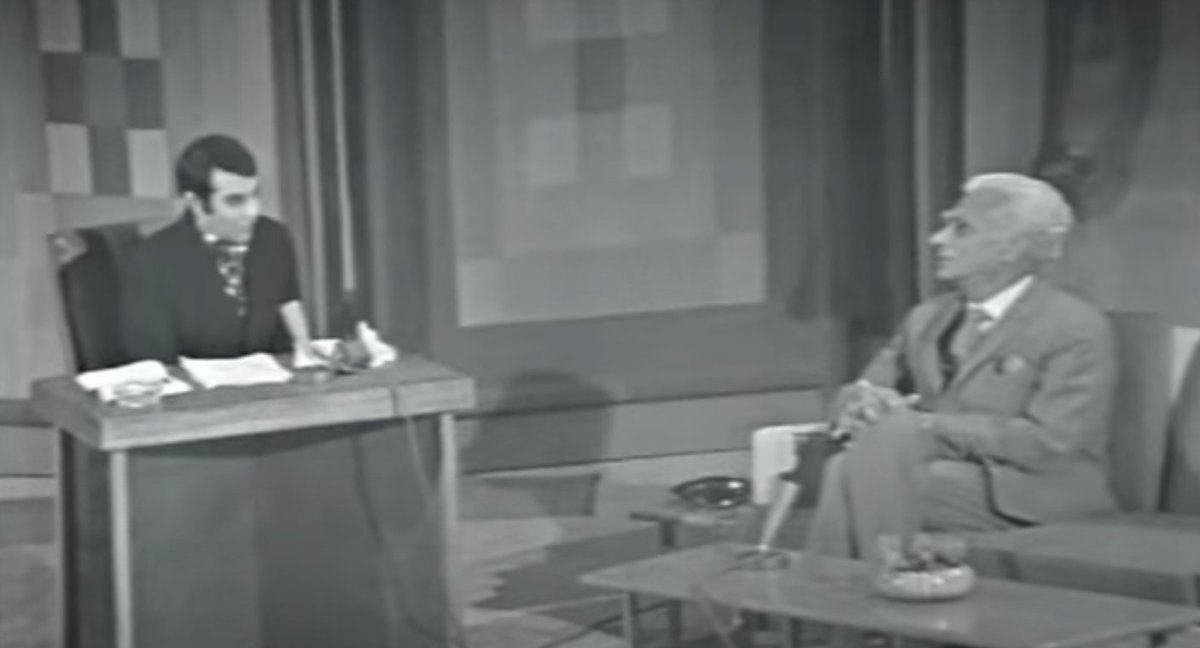
Zia Mohyeddin's long and illustrious career is hardly a secret. But one of his most remarkable achievements is the smashing of the idol called Zulfiqar Ali Bukhari. 

Bukhari -- one of the earliest voices on Indian airwaves -- was mentor to an entire generation. He gave them solid grounding in thinking about the relationship of Urdu, sound and technology. Zia Mohyeddin too counted himself among Bukhari's admirers, and rightly so.
Some say on Rashid Turabi's advice during Pakistan's early years, Bukhari began to take seriously what we call tahtul lafz, a sort of dramatic reading of poetry, which almost always is the marsiya.
Traditional taht is very animated, has a slow warble, some vowels are elongated, others are punchy. Mostly, but not always, the bayt is delivered in a gutteral register. This switch is similar to the one you find in Rashid Turabi and Talib Johri's signature styles of khitabat.
To start off, here's a five-minute clip of Rashid Turabi reciting Anis, seamlessly mixing poetry with prose, taht with khitabat. Worth weighing in gold, really. More examples to follow.
Now, everyone at that point wanted to become the larger-than-life Rashid Turabi, even his detractors. Bukhari, always keen on proving his mettle, married his BBC training with his ashraf dandiness and brought his 'voice of God' style to broadcast taht.
His raspy monotone and bureaucratic persona seeped more and more into his booming recitals, which sounded authoritative in a way an elder's scolding sounds authoritative. Yet, he influenced everyone from Mohammad Ali to Tariq Aziz to Abid Ali. Even Naseer Turabi emulated him.
If you're feeling funny, you can also make the case for Bukhari's anxiety to make Urdu and the Urduwala sound authoritative during times of great political upheaval. His AIR and Radio Pakistan career is full of stories that speak to this inclination.
Don’t get me wrong, there’s much to admire in the Bukhari mould, but sadly it became the dominant aesthetic. Every broadcaster wanted to be him. A much smaller character in the radio story but still never read or heard about anyone wanting to emulate S.M. Saleem, for instance.
Here’s an example of Bukhari reciting Anis. The style doesn’t really work for the first four half-verses here. Bukhari tries to adjust, but there’s hardly room for tenderness in his grandeur.
Lutfullah Khan recalls in his memoirs how Bukhari deployed the "natural grandeur and pomp" in his voice at will, often to impose himself, and the text, on the listener.
Zia Mohyeddin had a disdain for this established style. Taking cue from Gielgud, he started what he called parhant -- a heady mix of theatre and traditional tehet that virtually came to define in the public imagination the experience of Urdu pouring into one's ears.
Here's him talking about the style, associated with but not entirely restricted to Bukhari. He exaggerates, but only to make the point.
In Zia Mohyeddin's own words, "inflection" is key in parhant. Inflection in the sense of modulating the voice to communicate the "subtext" of a literary work. Alright. But that's precisely what tahtul lafz is all about, so what's the big deal then?
The good liar that he was, all these years Zia Mohyeddin kept us focused on inflection. Of course, Bukhari's emphasis on grandeur did not permit much inflection so this was new. Fine.
But what Zia Mohyeddin was really doing, and perhaps what we were really learning to relish through him, was the introduction of a new timbre -- a delicate, almost wounded, silkiness of the voice. After all, Urdu doesn’t really have to 'sound' imposing to sound beautiful.
Today, from Hadi Askari’s PTV documentaries to EMI and Iqbal Academy’s vast catalogs, and even through recordings from literature festivals across the country, Zia Mohyeddin’s timbre reigns supreme.
To confirm this bias, here's an example each from poetry and prose. Bear in mind, Bukhari's recitals are amateur recordings from his reclusive final years. Zia, of course, had better recording technology, RADA training and, most importantly, the luxury of hindsight.
First up, here’s how Bukhari opens Iqbal's Saqinama.
And here’s Zia Mohyeddin’s excerpt.
Now, here's an excerpt from a delicious Patras essay in the younger brother's voice.
Here’s the same excerpt in Zia Mohyeddin’s voice, recited in front of a live audience.
The afterglow of Zia Mohyeddin's achievement lives on. Even in death, he remains a mentor, now for new generation, for whom both Bukhari and bureaucratic ashraf dandiness are long, long gone.
• • •
Missing some Tweet in this thread? You can try to
force a refresh




